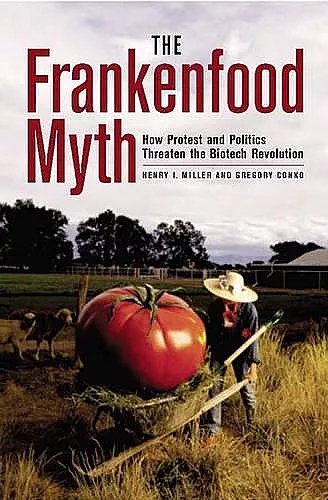The Frankenfood Myth
How Protest and Politics Threaten the Biotech Revolution
Henry Miller author Gregory Conko author
Format:Hardback
Publisher:Bloomsbury Publishing PLC
Published:30th Aug '04
Currently unavailable, and unfortunately no date known when it will be back

This non-fiction hardback, "The Frankenfood Myth" from Henry Miller & Gregory Conko, was published 30th August 2004 by Bloomsbury Publishing PLC.
ISBN: 9780275978792
Dimensions: unknown
Weight: unknown
296 pages